Date Created: 2006-09-27 11:20:26
![]()
![]()
26/09/2006
Advanced, flexible and more efficient measures to prevent unsuitable people working with children and protected adults are among the provisions set out today in the Protection of Vulnerable Groups (Scotland) Bill.
The Bill extends the protection afforded to Scotland's children and introduces new protections for adults at vulnerable points in their lives by taking forward the key recommendation of Sir Michael Bichard's report following the Soham tragedy.
It builds on existing legislation, particularly the Protection of Children (Scotland) Act of 2003 and Part V of the Police Act of 1997, and closes operational loopholes in the current vetting arrangements and addresses frustrations felt by users.
A Single Executive Agency will be formed to support the new vetting and barring scheme. It will bring together Disclosure Scotland, which will undertake the vetting function, and the Central Barring Unit, which will undertake the barring function.
The Bill also provides duties in relation to sharing child protection information making explicit what many professionals currently do by way of good practice.
Deputy Education Minister Robert Brown said:
"Vulnerable groups deserve the best possible protection from harm that we can provide and I am confident that this Bill enhances the quality of protection whilst reducing bureaucracy.
"This Bill will help to ensure that people who should not be around children or vulnerable adults cannot access them through work.
"Many of the organisations and the workforces which fall within the scope of the provisions are now familiar with vetting and disclosure and the current aspects which give rise to frustration will be remedied by the new scheme.
"The improved scheme will quickly detect those who may become unsuitable to work with vulnerable groups while in employment as well as preventing unsuitable people from gaining access in the first instance.
"It will greatly reduce the current burden on employees and employers to do multiple disclosure checks when, for example, someone changes jobs or takes on voluntary work.
"While fees will be subject to further consultation I am confident the reduction in multiple checks means overall costs will not rise. We will also continue to meet the costs of checks for volunteers.
"It will also allow individuals to demonstrate they are not on the disqualified lists - helping parents and carers consider the safety of their children and make more informed decisions when choosing, for example, a private tutor or music teacher.
"Ensuring that agencies share information about a child they believe to be at risk should allow professionals to spot causes for concern more quickly - allowing them to take speedier action to protect the child."
The bill's main provisions will:
- For the first time in Scotland, Create a disqualified from working with vulnerable adults lists
- Extend the current disqualified from working with children list
- Introduce continuous updating of the barred lists to alert employers if new information about an employee comes to light that may indicate that they have become unsuitable for working with vulnerable groups
- Establish a Central Barring Unit to assess whether someone should be placed on one, or both, lists
- Introduce individual statements of barred status - allowing private tutors, for example, to prove they are not disqualified from working with children
- Introduce duties and powers for agencies to share information about children who they believe may be at risk
Part V of the Police Act 1997 enabled Scottish Ministers to carry out criminal record checks. To deliver this service, Ministers signed a PPP agreement with BT plc in April 2002 which runs until April 2014. This partnership, which operates under the name Disclosure Scotland, currently provides three levels of criminal record check - basic, standard and enhanced. Spent and unspent convictions are disclosed during enhanced checks, as may any relevant information held by the police.
The Bill is based on Recommendation 19 of the Bichard Inquiry Report which calls for all those who wish to work with children or vulnerable adults to be registered.
The Bichard Inquiry Report made 31 recommendations in total, many of which only had direct relevance to England and Wales. All of the recommendations with relevance for Scotland have either been implemented already or are in progress towards full implementation.






